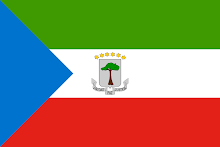
If i were a journalist traveling to Equatorial Guinea i would be very interested in living the live of a person who lives there. once i got there i would check for the best villages to stay in and villages that are safe but very like a typical village, because as a reporter i have to do job to the best of my ability. once i got to a village i would taste some of there exquisite queasiness. once i did that i would try to play soccer which is there countries most popular sport to my best ability to try to fit in. after that i would stay and get to see the life they live. i would stay an extended time to get the best of the experience. once i would be done id like many great memories and knowledge about Equatorial Guinea. This is Cameron Simon signing out.






